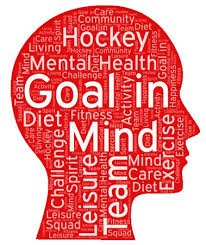Breaking the Ice on Mental Wellness
In the fast-paced, physically demanding world of hockey, mental health often takes a backseat to the focus on physical prowess and performance. However, the reality is that athletes, coaches, and fans within hockey communities are not immune to mental health challenges. From the pressure to succeed on the ice to the demanding schedules and the inevitable highs and lows of competition, hockey can take a toll on mental well-being. In this article, we delve into the importance of promoting mental health awareness within hockey communities and discuss strategies to foster a culture of support and understanding.
Understanding Mental Health in Hockey:
Hockey players face unique stressors that can impact their mental health. The competitive nature of the sport, combined with the constant scrutiny and pressure to perform, can contribute to anxiety, depression, and other mental health issues. According to a study published in the Canadian Journal of Psychiatry, athletes involved in team sports like hockey may experience higher levels of stress due to factors such as team dynamics, performance expectations, and the influence of coaches and teammates.
Moreover, the culture of toughness and resilience often associated with hockey can discourage players from seeking help for mental health concerns. This stigma surrounding mental illness can prevent individuals from reaching out for support, leading to feelings of isolation and hopelessness.


Promoting Mental Health Awareness in Hockey Communities
- Education and Training: Providing education and training on mental health awareness can help break down stigma and encourage open conversations within hockey communities. Coaches, players, and support staff should receive training on recognizing the signs of mental health issues and accessing appropriate resources for support. Organizations like the Mental Health Commission of Canada offer resources and training programs tailored to the needs of athletes and sports organizations.
- Destigmatizing Mental Health: Changing the narrative around mental health is crucial in fostering a supportive environment within hockey communities. By sharing personal stories of resilience and recovery, athletes can inspire others to seek help and break free from the stigma associated with mental illness. Initiatives like the “Talk Today” program, developed by the Canadian Mental Health Association and the Ontario Hockey League, aim to reduce stigma and promote mental wellness through education and awareness campaigns.
- Access to Resources: Ensuring access to mental health resources is essential for supporting the well-being of hockey players and those involved in the sport. This includes providing access to mental health professionals, such as psychologists and counselors, who understand the unique challenges faced by athletes. Additionally, online platforms and helplines can offer confidential support and resources to individuals struggling with mental health issues.
- Prioritizing Self-Care: Encouraging self-care practices can help hockey players manage stress and maintain their mental well-being. This includes promoting strategies such as mindfulness, relaxation techniques, and adequate rest and recovery. Coaches and team staff can play a vital role in modeling healthy behaviors and creating a supportive environment that prioritizes both physical and mental health.
What Haymaker HOckey Thinks
Promoting mental health awareness in hockey communities is essential for creating a culture of support, understanding, and resilience. By breaking down stigma, providing education and resources, and prioritizing self-care, hockey organizations can empower individuals to prioritize their mental well-being and seek help when needed. Together, we can ensure that everyone involved in the sport of hockey feels supported and valued, both on and off the ice.
If you’re struggling please reach out to us! We promise to do what we can to help and support you!
